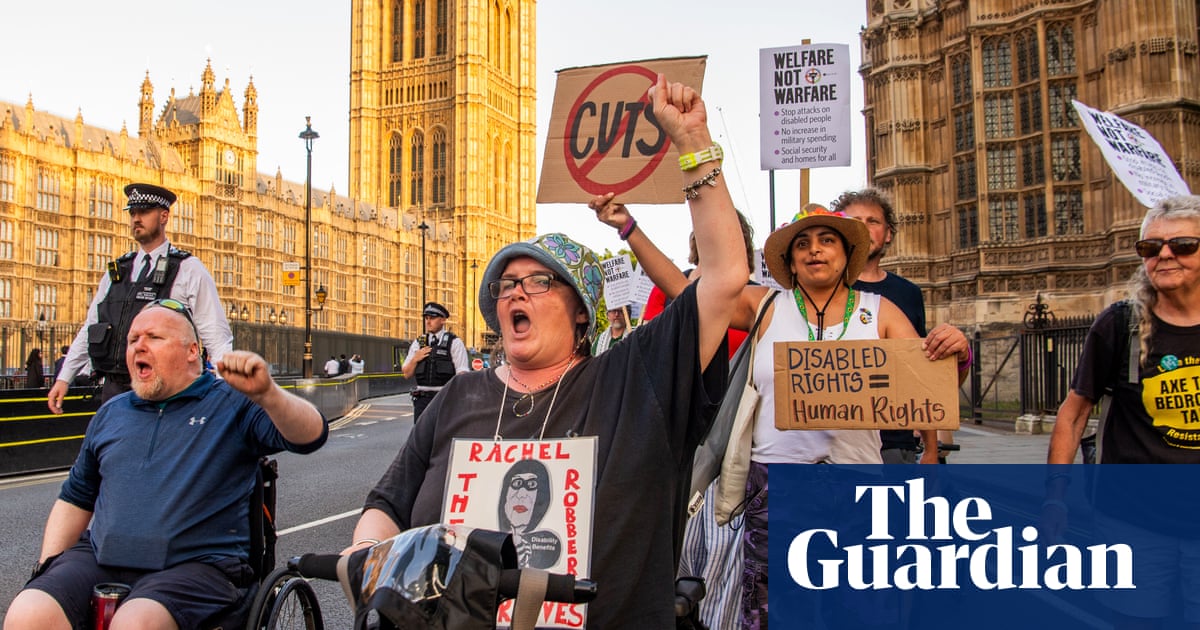There will be “a cost” to the government’s climbdown on welfare changes at the budget, one of Keir Starmer’s senior ministers has said, as a leading fiscal thinktank said new tax rises appeared increasingly likely.
Pat McFadden, the chancellor of the Duchy of Lancaster, defended Starmer and the work and pensions secretary, Liz Kendall, after the second reading of the government’s main welfare bill passed its first Commons test only after a central element was removed.
“Most of all we stand as a team,” he told BBC Radio 4’s Today programme when asked if Kendall’s position was tenable after she was forced toshelve plans for deep cutsto personal independence payments (Pip) to avoid a potential Commons defeat.
But with all the mooted £5bn-a-year savings from the changes to Pip now gone, McFadden conceded that this would change calculations for the budget this autumn.
“In any budgetary decision, there’s definitely a cost to what was announced yesterday, and you can’t spend the same money twice, so more money spent on that means less for some other purpose,” he said. “But those decisions have to be taken in the round.”
The universal credit and personal independence payment bill passed its second reading on Tuesday evening by 335 votes to 260, a majority of 75.
Forty-nine Labour MPs voted against the second reading, over three times more than the previous biggest rebellion, when 16 voted against the government on an amendment to the planning and infrastructure bill last month.
Helen Miller, the new head of the Institute for Fiscal Studies thinktank, said the lack of savings from the Pip changes made tax rises “increasingly likely” at the budget and that the chancellor,Rachel Reeves, now had “very little wriggle room”.
The welfare bill as it stood would now not create any savings, she told Today: “By the end of this parliament the government will save nothing.”
With the £5bn gone, and about £1bn extra going on the recentU-turn over winter fuel payments, much of Reeves’s fiscal headroom had gone, Miller said, particularly if growth forecasts were scaled back.
The overall handling of the bill, which involved a sequence of climbdowns over Pip as ministers faced the prospect of the first defeat for a government bill at second reading since 1986, has led to fingers being pointed at the Downing Street political operation, Labour whips and Starmer himself.
Sign up toFirst Edition
Our morning email breaks down the key stories of the day, telling you what’s happening and why it matters
after newsletter promotion
“It has been a difficult process, I’m not going to deny that,” McFadden said. This was, he argued, because Labour MPs “care about the people involved, care about the issues involved. And so it has been difficult, and now we’ll have to take this forward in a different way with the elements of the bill that we still have in the bill that was passed last night”.
But he dismissed the idea that Kendall in particular was now at risk. Asked how she could stay in her role, he replied: “She can carry on because she is an excellent person to do this job. She cares passionately about these issues. She has enormous courage and because most of all, we stand as a team. We stand together as a team. We won the election as a team, and we serve in government as a team.”
MPs were particularly concerned that the government’s own poverty analysis showed that, even after a series of concessions, 150,000 of the most vulnerable people would end up in relative poverty as a result. Officials said the modelling did not take into account the changes being made to the NHS and back-to-work schemes.
The bulk of the rebels were from the left of the party, and none of them were the select committee chairs who spearheaded the rebellion last week, but it was a sizeable rebellion given the scale of concessions already made.
